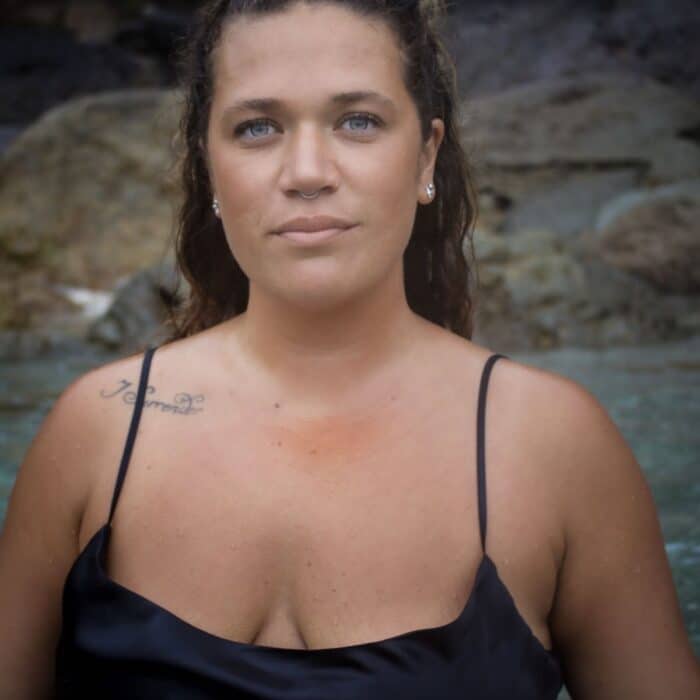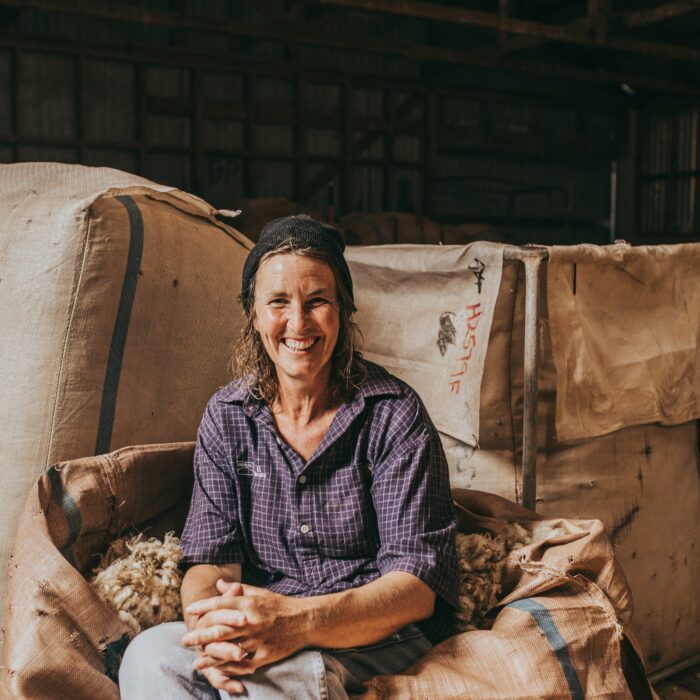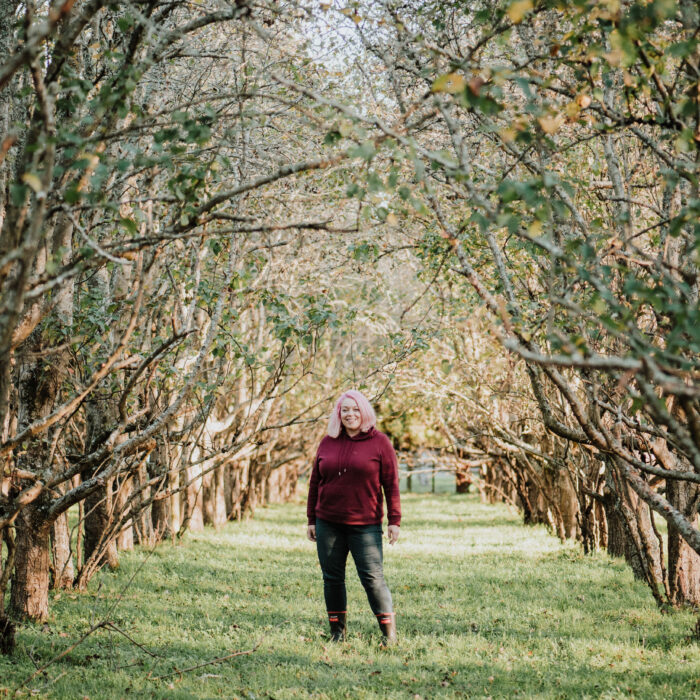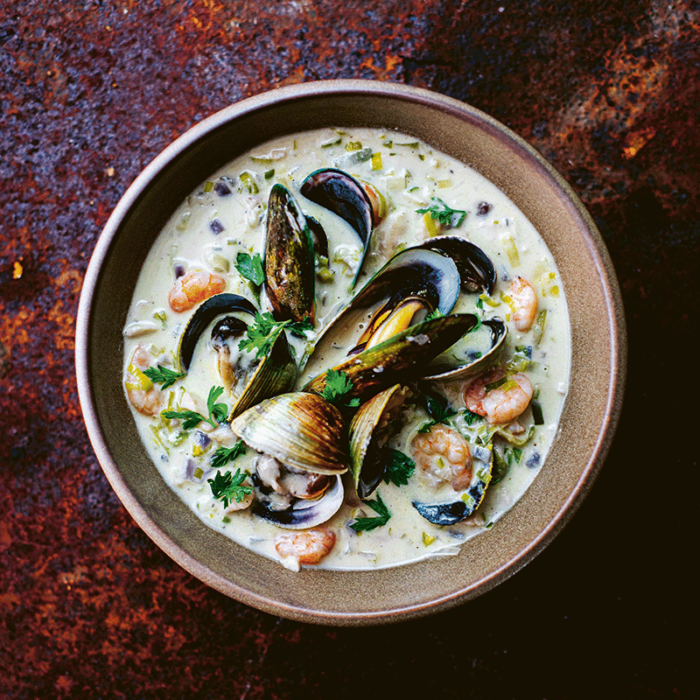22 June 2022
Learning from the Soil
writer: ANNA BRANKIN (KĀI TAHU, NGĀTI MĀMOE)
photographer: MICHELLE HEPBURN
Kaiahuwhenua. Grower.
Pounamu Skelton is a longtime advocate for kai resilience. She’s spent many years accumulating and sharing mātauranga to help whānau become more independent in their food production.
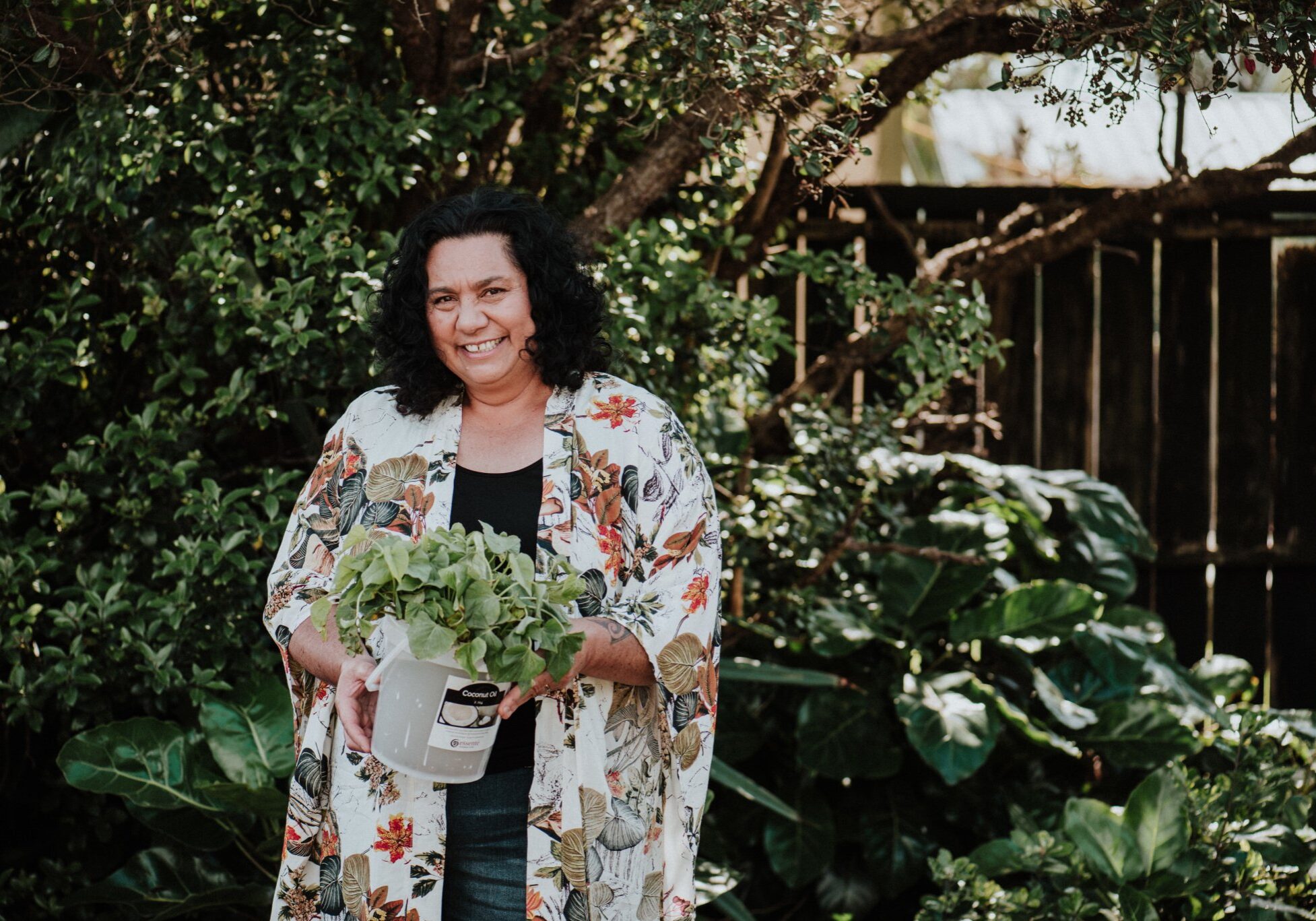
Growing food is more than a way of life for Pounamu Skelton, it’s also the legacy of her tūpuna, a way to reconnect to her roots and to embrace traditional knowledge around health and wellbeing. “I think about this whakataukī all the time – ‘He kai te rongoā, he rongoā te kai.’ Food is our medicine; it helps keep us well.”
Pounamu, 51, who is of Te Ātiawa, Taranaki Tūturu, Ngāti Ruanui and Ngāti Raukawa descent, was born in the small Taranaki town of Waitara, although she grew up in Kirikiriroa Hamilton and spent her early adult years travelling the world before she felt the call to return home and reconnect to her roots.
“I came back to Waitara just over twenty years ago, this little wee town where I knew I had lots of cousins. I knew my tūpuna had been here,” she says. “I started to learn te reo Māori, and there was one kupu that resonated with me: tūrangawaewae, a place to stand. This is where I belong, this is where my tūpuna are from, what they fought for, what they died for.”
The return to Waitara also allowed Pounamu to explore a burgeoning interest in māra kai, rekindling lessons around food sovereignty that began in her childhood. Many of her earliest memories are of playing in the garden, sandwiches made with the juicy tomatoes her dad had grown, and the long table full of beautiful, fresh food at her grandparents' house.
"My grandparents lived on tūpuna land, and were fairly self-sufficient. They went to town maybe once a month to get supplies, but meat and vegetables came from the land," she says. "At home, I was just a kid who would come along and eat a pea from the pod and play around. But gardening was a normalised practice; I always knew that's where food came from, that's where my parents and grandparents would hang out on the weekends."
Pounamu was able to manifest these memories of gardening in her own daily life about twelve years ago, when she and her daughters, Te Kahurangi and Kahana, were given the opportunity to live just north of Waitara. "I had always had this dream of living off-grid and being able to feed myself, and here was ten acres of organic land with its own water source," she says. "We had seven years on that property, and I was really guided by tūpuna about how to plant and where to plant. I very much played around and followed my intuition."
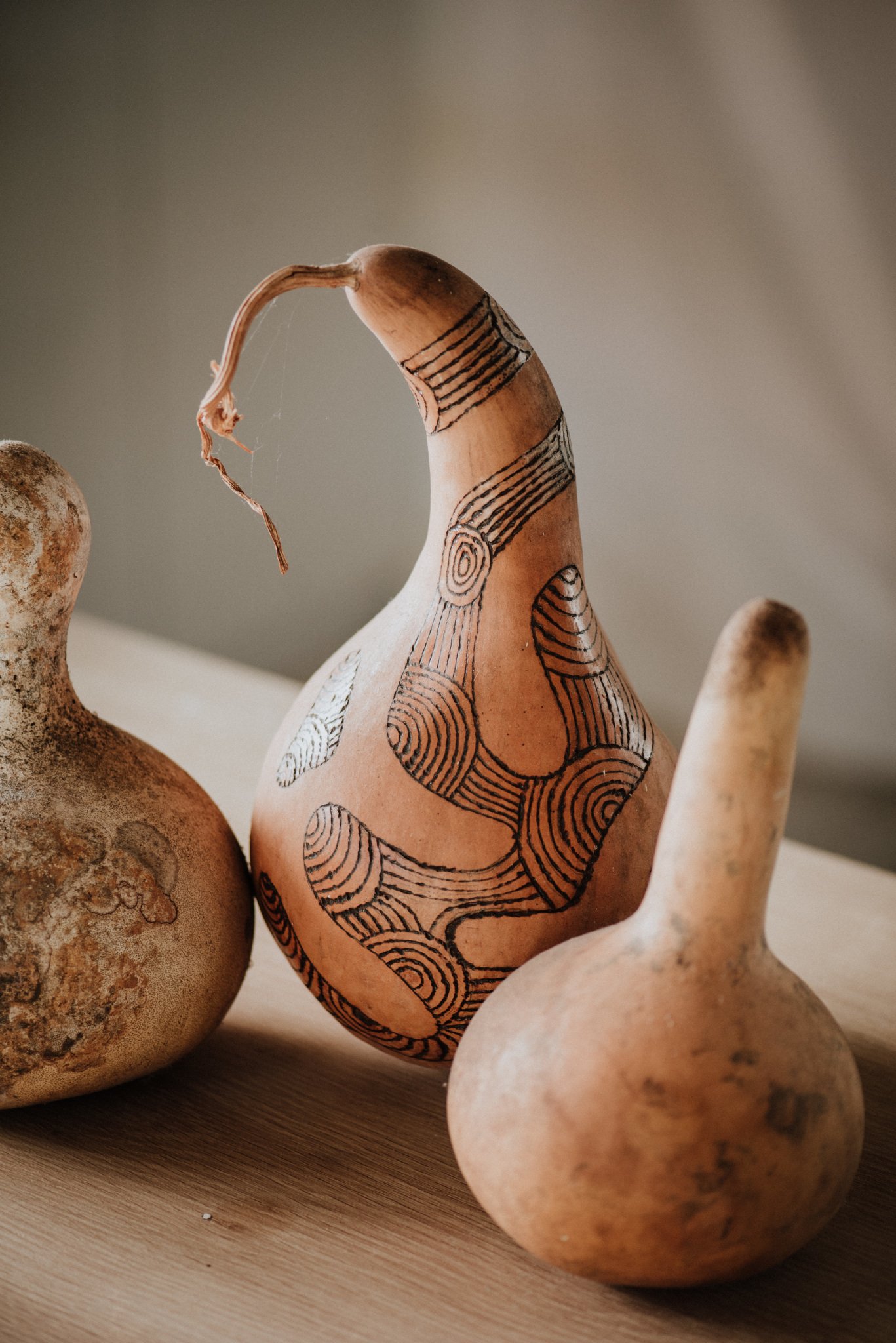
Pounamu's intuition served her well, and in 2009 she was asked to become the national coordinator for Te Waka Kai Ora, the National Māori Organic Authority. "Part of our mahi was to interview kaumātua around the country for a project called Hua Parakore, which is an indigenous verification and validation of excellence for mahinga kai."
"We took everything we learned in those interviews and distilled it down into six principles, that are still the foundation of Hua Parakore," Pounamu says. "And at that point I thought actually, I've spent all this time listening and learning, now it's time for me to live it." She decided to take a step back, return to her own māra kai, and immerse herself in the six principles - whakapapa, wairua, mana, māramatanga, mauri and te ao tūroa.
"Since then I've been practising it, I've been teaching it, sharing that knowledge with hundreds of whānau," she says. "Just recently I've come full circle, and I'm back at Te Waka Kai Ora as the chairperson. We've just launched our online platform and it's really exciting that after all the planning and talking, it's finally ready."
For Pounamu, one of the key learnings from Hua Parakore is about working with your environment to create your garden. "It's about using what you've got. Taranaki has lots of rocks, for example, so if you've got a cold spot in your māra, use those rocks for the sun to radiate off, and for the rain to bring the minerals in. We use a lot of seaweed in our māra, like our tūpuna did. Look at your environment, use what you've got around you. Find ways to give back, to enhance the fertility of your soil."
Over the past eight years, Pounamu and her husband, Shane Cassidy, have also incorporated mātauranga around the lunar cycle into their māra kai practices. "We follow the maramataka and live as much as we can by it. It really does identify the peak times, the down times, the new cycles. When to sow seed, when to harvest," she explains. "Over time I have come to think of maramataka as a building of knowledge rather than a step-by-step guide. There are tools to follow, but really they need to be practised. I view it like the soil: every growing season you get another layer of information."
Within her local community, Pounamu has become known as a driving force for kai resilience. "We've got quite high deprivation in Waitara, and food prices are rising, yet we have these huge sections where most people are just growing grass," she says. "We have a high Māori population, and if you look back to our whakapapa, Māori have always been food growers."
By sharing her mātauranga, Pounamu hopes to empower more whānau to be proactive about their kai resilience. "That's the silver lining of Covid-19: it really brought to the forefront things we've been talking about for years," she says. "In that very first lockdown there were gaps on the supermarket shelves and that made people realise they were way too dependent on supply chains."
To invigorate the local community and get them to embrace māra kai, Pounamu started Crop Swap. "Everyone brings what they've got in their garden or something related - might be herbs or eggs, might be empty jars for preserving - and you just put it on the table and you swap," Pounamu says about the monthly event. "It's so gorgeous, I love it! It's a manifestation of ideas and values around community spirit and sharing abundance." It's also where beginners can learn the basics - about sowing seeds, transplanting, composting, worm farming, mulching and more.
Of course, it's not just about the kai. "Yes, the vehicle is growing food, but the real benefit is that people come back and reconnect to their true selves," she says. "When I think of gardening, I think of joy; creating a space where it feels joyous to be. I think of running around my grandmother's garden when I was a child, all my senses evoked. Make your space magical and bring your whānau in so they can forever have it etched in their memories. That's what my grandmother did for me and that's what I'm doing now."
Glossary. Hue, gourd. Kai, food. Kaumātua, elders. Kawakawa, pepper tree. Kūmara, sweet potato. Kupu, word. Māra kai, cultivation site. Mahi, work. Mahinga kai, garden. Mana, social justice. Maramataka, Māori lunar calendar. Māramatanga, enlightenment. Mātauranga, wisdom. Mauri, healthy soils, kai and people. Rongoā, medicine. Te ao tūroa, natural world. Tūpuna, ancestors. Tūrangawaewae, the place to stand and belonging. Wairua, peace and safety. Whakapapa, genealogical connection. Whakataukī, proverb. Whānau, family.
If you enjoyed this story, please share with someone else.
This story appeared in the Ngahuru Autumn 2022 Edition of Shepherdess.
Get your hands on a copy.
Related Stories
Sharon Smith
This story is the first in a series where we share, in their own words, the stories of ten women who call Tararua home.
